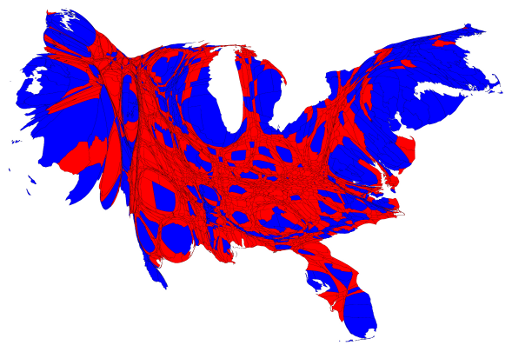- Joined
- Jun 14, 2019
- Messages
- 1,333
- Reaction score
- 732
- Gender
- Female
- Political Leaning
- Very Liberal
If the leaked opinion is adopted by the Supreme Court and Roe is repealed, it will likely mean the rift between red and blue states will grow even more dramatically.
There's a theory that one of the things that contributed to the huge decline in violent crime rates in the mid-to-late 1990's is that's when the "Roe Generation" reached its peak crime years. Thanks to Roe, it was a generation with an unusually high percentage of people who'd actually been planned and wanted by their parents. The theory goes that having relatively fewer people who grew up impoverished and neglected by parents ill-prepared to deal with them meant that the generation committed crimes at lower rates than prior generations in that age block. Where moral scolds like Bill Bennett had anticipated the arrival of a new generation of super-predators, instead we got a generation that was less likely to turn violent. Well, if Roe goes and abortion is soon illegal in the conservative half of America, that theory suggests we're a generation away from sky-rocketed violent crime in those areas.
Already, our nation's worst states for violence are red states. The top states for murder rates in 2020 were LA, MO, MS, AR, SC, AL, and TN -- all places likely to outlaw or extremely restrict terminating an unwanted pregnancy if the Constitution no longer bars their way. So, they could plunge even further into the abyss, while most low crime states remain in reasonably good shape. Of the ten states with the lowest murder rates, only two (ID and UT) are likely to outlaw abortion. As nasty as life already is somewhere like Missouri, versus somewhere like Massachusetts, that gulf seems likely to grow.
There's a theory that one of the things that contributed to the huge decline in violent crime rates in the mid-to-late 1990's is that's when the "Roe Generation" reached its peak crime years. Thanks to Roe, it was a generation with an unusually high percentage of people who'd actually been planned and wanted by their parents. The theory goes that having relatively fewer people who grew up impoverished and neglected by parents ill-prepared to deal with them meant that the generation committed crimes at lower rates than prior generations in that age block. Where moral scolds like Bill Bennett had anticipated the arrival of a new generation of super-predators, instead we got a generation that was less likely to turn violent. Well, if Roe goes and abortion is soon illegal in the conservative half of America, that theory suggests we're a generation away from sky-rocketed violent crime in those areas.
Already, our nation's worst states for violence are red states. The top states for murder rates in 2020 were LA, MO, MS, AR, SC, AL, and TN -- all places likely to outlaw or extremely restrict terminating an unwanted pregnancy if the Constitution no longer bars their way. So, they could plunge even further into the abyss, while most low crime states remain in reasonably good shape. Of the ten states with the lowest murder rates, only two (ID and UT) are likely to outlaw abortion. As nasty as life already is somewhere like Missouri, versus somewhere like Massachusetts, that gulf seems likely to grow.

